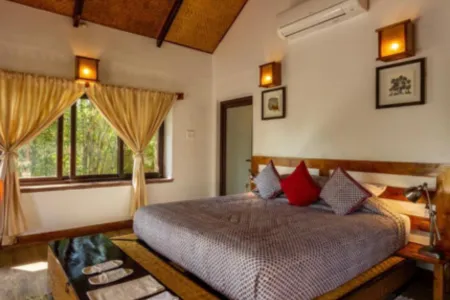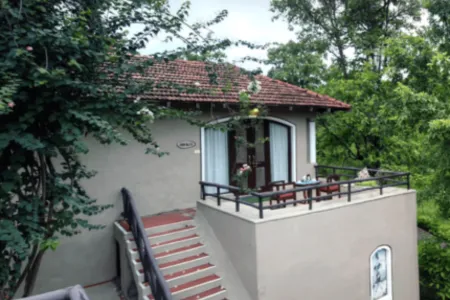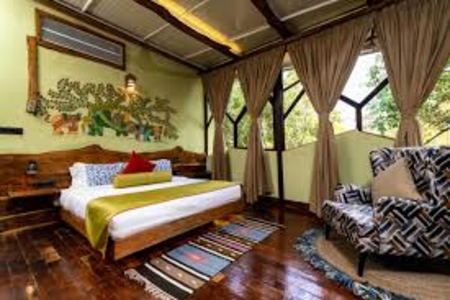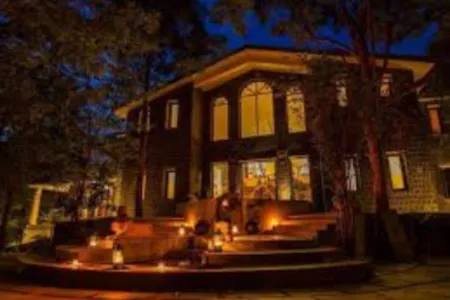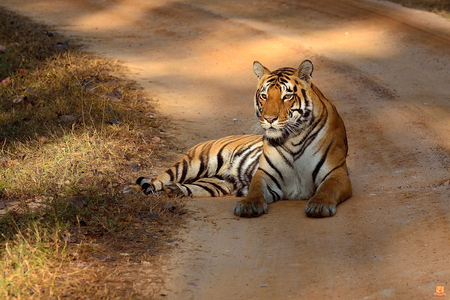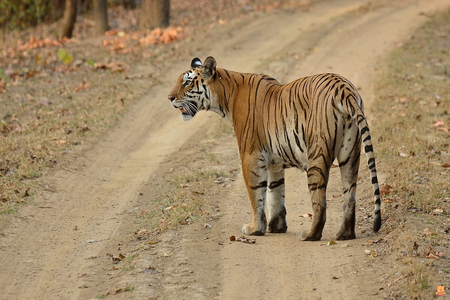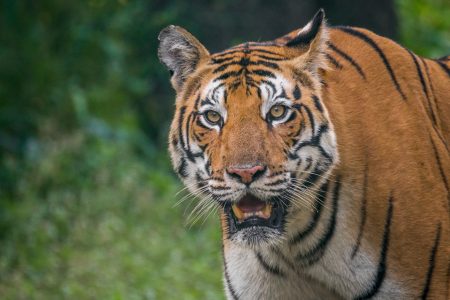The lush sal and bamboo forests, grassy meadows and ravines of Kanha have been immortalised by Rudyard Kipling, who set his 1894 Jungle Book adventure of Mowgli (the Wolf Boy) in this very forest. The vast size of the park- 2051 sq km with a core area of 917 sq km and buffer area of 1134 sq km makes extended explorations possible, making it a favourite with photographers for its sheer quality of wildlife viewing.
The Kanha National Park / Kanha Tiger Reserve in Madhya Pradesh came into being in 1955 and forms the core of the Kanha Tiger Reserve, created in 1974 under Project Tiger. The park is nestled in the Maikal range of Satpuras in Madhya Pradesh, the heart of India that forms the central Indian highlands.The national park is being popularized as the Tiger reserve and interestingly is being declared as one of the finest wildlife areas in the world.
The Park is respected globally for saving the Barasingha from near extinction. No doubt, it is one of the best managed parks in Asia and a part of Project Tiger. National Geographic’s award winning ‘Land of the Tigers’ was shot here, but the park is home to leopards, wild dogs and Barasingha as well. Legendary for its wilderness and tiger sightings, this reserve has fascinated many travellers around the corners of the world with its well developed infrastructure specially meant for them.
Immensely rich in game, Tigers are the apex predators at Kanha National Park/Kanha Tiger Reserve, Kanha is home to 100 plus tigers. The famous Kanha meadows are abound with large herds of chital and barasingha. The park is also a good place to see the leopard, sloth bear, dhole (Indian wild dog) and Indian wolf. Lesser predators include the jungle cat, Indian fox, small Indian civet, golden jackal, common and ruddy mongoose. The prey base species also include gaur, sambar, wild boar, chousingha and barking deer. Primates here are the northern plains grey langurs.
The bird life is impressive, with over 300 species including the mottled wood owl, grey-headed fish eagle, red spurfowl, painted francolin, jungle bush quail, blue-capped rock thrush, Indian vulture, brown fish owl, orange-headed thrush, tawny-bellied and Indian scimitar babbler, Tickell’s and ultramarine flycatcher, greater racket-tailed drongo, malabar pied hornbill, brown-cheeked fulvetta, Indian scops owl, crested tree swift, sirkeer malkoha, zitting cisticola, scarlet minivet, white-rumped shama, Indian nightjar and Indian thick-knee. Warblers found here are the Hume’s leaf, sulphur-bellied and greenish warbler.
Safaris at Kanha National Park- Safaris at Kanha National Park are offered across – Kanha, Kisli, Mukki and Sarahi zones of National Park via Mukki and Khatiya Entry gates which are 40 km apart. One can also access Sarahi zone directly.
Regular Jeep Safaris: Regular Jeep Safaris are conducted twice daily- morning and evening. The morning safari starts around 6 AM ( changes with season depending on sunrise) and lasts for up to 4.30- 5.00 hours. Packed breakfast is provided to guests going on morning safari which can be eaten at a designated area inside the park during safari hours. The duration of the evening safari is 3.00- 3.30 hours again depending on sunset.
Full-day Safari: A full-day Jeep safari provides zone-free and route-free access to visitors across the tourism zones of Kanha National Park. Visitors are allowed to enter 15-20 minutes before other vehicles and are also allowed to exit the national park 15-20 minutes after the designated time slot for regular jeep safaris. This format is very popular with wildlife photographers and filmmakers as it provides flexibility in terms of time window and also access.
Walking Safaris: Kanha National Park also offers walking safaris on guided trails in the buffer zone along the Banjar River. The guests are accompanied by a naturalist and a guide, learning about the flora and fauna of Kanha National Park. The Walking safari is a welcome break from the jeep safaris and gives and opportunity to explore rich biodiversity on foot.
Night Safari in Buffer zone: Night safari is also offered in the Khapa and Khatiya buffer zones at Kanha Tiger Reserve.

